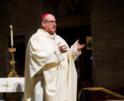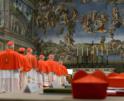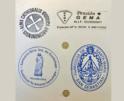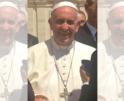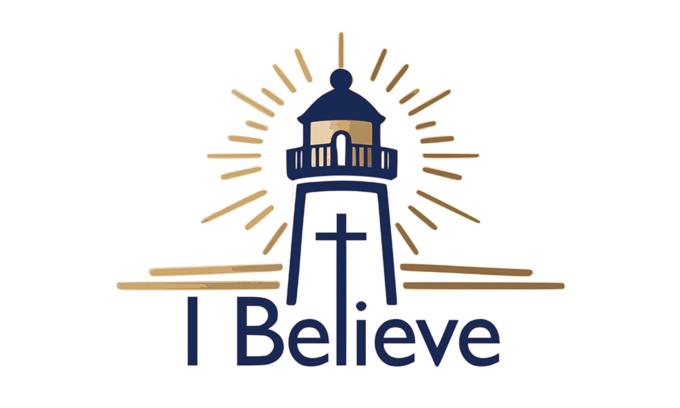
Faith
Jesus' words to Thomas reach out to us as we hear this passage proclaimed. We are those who have not seen and yet believed.
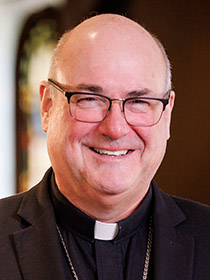
Henning
In the New Testament, "koinonia," or communion, is a matter of shared life: our link to God in Christ, our link to the Lord Jesus by the power of the Holy Spirit, our union with one another in Christ.
In the Acts of the Apostles, Luke recounts the remarkable growth of the early Church and of the amazing events that occur among the believers. He shows us the intensity and authenticity of their faith in the face of persecution and failure. Above all, Luke reveals the role of the Lord Jesus in the story. The Lord Jesus inspires and empowers the Apostles to give witness. The Spirit of the Lord vivifies the community in its prayer and charity. The Lord intervenes to deliver and direct key figures such as Peter and Paul.
This Sunday, we will hear a passage that begins by telling of the signs and wonders done by the Apostles. Even Peter's shadow can effect healing. Just as Jesus did in his ministry, Peter and the Apostles heal and drive out unclean spirits. Their signs and wonders do not demonstrate their own power, but their link to Jesus. As both Peter and Paul point out later, they are not "gods." Their deeds are done in the name of the Lord Jesus, by his authority, by his power, and to his glory. Their communion with him is the source of their remarkable new life of faith.
John of Patmos, author of the Book of Revelation, found himself in different circumstances. Imprisoned and persecuted for his Christian faith, he could not move freely about in the work of evangelization. But his voice was not silenced. He wrote to his fellow Christians at a time of ferocious persecution in the style of a prophet of old. Even in his suffering, John enjoyed a mystical link with the Lord that imbued his work with the power of hope in a time of despair. His work vibrates with the conviction that the power of God will overcome the p ower of cruel and corrupt men. In these opening verses of the work for Divine Mercy Sunday, John reveals to us that his message is not his own. It is the truth and power of Jesus himself.
In the passage this Sunday from the Gospel of John, we read of post-resurrection appearances of the Lord to his disciples. In the first visit, Jesus breathes the Holy Spirit upon them. In John, Jesus brought a new family of faith to life even as he was dying on the cross. He entrusted his mother, representative of the Church, to the care of his beloved disciple and vice versa. As he died, John's Gospel tells us that he handed over the Spirit. This is not a euphemism for death but an expression of the power of Jesus' promise to remain with his friends. From the very instant of his death, they receive his ongoing presence in the Spirit. And from his side, the blood and water of Eucharist and baptism flow to sustain this new community. Now, in the Upper Room, Jesus gives them the Spirit for a new phase of their community life. His presence among them will not be passive but will bring them to action in the world: they will go forth to participate in his ministry of healing the world. His breathing upon them, like the breath of God upon the waters at the creation, is a re-creation of these frightened disciples into men and women ready to witness with conviction even to death.
In a second visit, they learn a further crucial lesson about their new reality: the mystery of the cross remains. The Risen and Glorified Lord continues to bear the marks of his suffering. While Thomas had claimed he would not believe until he touched the wounds, when Jesus stands before him, he does not in fact touch. Instead, he, like the others, will touch those wounds in his own suffering for the faith and in his own dying.
Jesus' words to Thomas reach out to us as we hear this passage proclaimed. We are those who have not seen and yet believed. And we are reminded here that it is our link to the Lord Jesus, our communion with him, that empowers us to participate in his healing mission and witness to his name. We need not rely upon our own strength, for he is our strength. We need not fear the cross for even the touching of his wounds brings life in his name.
On this Divine Mercy Sunday, we remember that Jesus is at the heart of history and the foundation of the Church. Mercy and new life flow through our link to him. Our Holy Father knew this well. He devoted himself to living in that communion and in proclaiming it to the world. Now, even as we mourn our Holy Father, we lovingly entrust him to that Mercy and place our hope in the same.
- Archbishop Richard G. Henning is the Archbishop of Boston
Recent articles in the Faith & Family section
-
'A powerful legacy and witness'Archbishop Richard G. Henning
-
The next popeJaymie Stuart Wolfe
-
A pilgrim on the CaminoFather Robert M. O'Grady
-
'To Change the World, We Must Be Good to Those Who Cannot Repay Us'Maureen Crowley Heil
-
Divine Mercy SundayArchbishop Richard G. Henning

